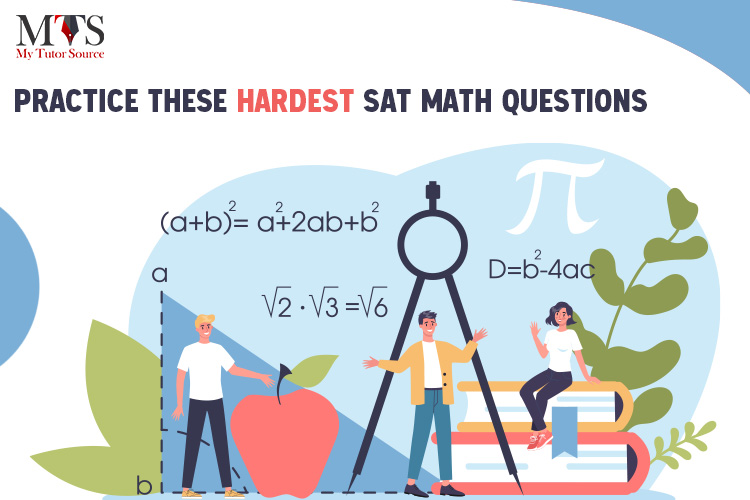
Rethinking educational assessments: the matrimony of exams and coursework

Standardised tests have been cemented in education systems across the globe, but whether or not they are a better assessment of students’ ability compared to coursework still divides opinions.
Proponents of exam assessments argue that despite being stressful, exams are beneficial for many reasons, such as:
- Provides motivation to study;
- Results are a good measure of the student’s work and understanding (and not anyone else’s); and
- They are a fair way of assessing students’ knowledge of a topic and encourage thinking in answering questions that everyone else is also taking.
But the latter may not be entirely true. A Stanford study says question format can impact how boys and girls score on standardised tests. Researchers found that girls perform better on standardised tests that have more open-ended questions, while boys score higher when the tests include more multiple-choice questions.
Meanwhile, The Hechinger Report notes that assessments, when designed properly, can support, not just measure, student learning, building their skills and granting them the feedback they need.
“Assessments create feedback for teachers and students alike, and the high value of feedback – particularly timely feedback – is well-documented by learning scientists. It’s useful to know you’re doing something wrong right after you do it,” it said.

Exams are important for students, but they must be designed properly to ensure they support student learning. Source: Shutterstock
Conversely, critics of exams say the obsession with test scores comes at the expense of learning – students memorise facts, while some syllabi lack emphasis of knowledge application and does little to develop students’ critical thinking skills.
Meanwhile, teachers have argued that report card grades aren’t the best way to measure a student’s academic achievement , adding that they measure effort more than achievement.
Coursework, on the other hand, assesses a wider range of skills – it can consist of a range of activities such as quizzes, class participation, assignments and presentations. These steady assessments over an academic year suggests there is fair representation of students’ educational attainment while also catering for different learning styles.
Quizzes can be useful as they keep students on their toes and encourages them to study consistently, while giving educators a yardstick as to how well students are faring. Group work, however, can open up a can of worms when lazy students latch on to hard-working peers to pull up their grades, or when work is unevenly distributed among teammates.
It becomes clear that exams and coursework clearly test students’ different ‘muscles’, but do they supplement and support students’ learning outcomes and develop students as a whole?
The shifting tides

Coursework can develop skills such as collaboration and critical thinking among students, which exams cannot. Source: Shutterstock
News reports suggest that some countries are gradually moving away from an exam-oriented education system; these include selected schools in the US and Asian countries.
Last year, Malaysia’s Education Minister, Dr Maszlee Malik, said students from Year One to Three will no longer sit for exams come 2019, enabling the ministry to implement the Classroom-Based Assessment (PBD), in which they can focus on a pupil’s learning development.
Meanwhile, Singapore is cutting down on the number of exams for selected primary and secondary school levels, while Georgia’s school graduate exams will be abolished from 2020. Finland is a country known for not having standardised tests, with the exception of one exam at the end of students’ secondary school year.
Drawing from my experience, I found that a less exam-oriented system greatly benefitted me.
Going through 11 years of the Malaysian national education system was a testament that I did not perform well in an exam-oriented environment. I was often ‘first from the bottom’ in class, which did little to boost my confidence in school.
For university, I set out to select a programme that was less exam-oriented and eventually chose the American Degree Programme (ADP), while many of my schoolmates went with the popular A-Levels before progressing to their degree.
With the ADP, the bulk of student assessments (about 70 percent, depending on your institution) came from assignments, quizzes, class participation, presentations and the like, while the remaining 30 percent was via exams. Under this system, I found myself flourishing for the first time in an academic setting – my grades improved, I was more motivated to attend my classes and learned that I wasn’t as stupid as I was often made out to be during my school days.
This system of continuous assessments worked more in my favour than the stress of sitting for one major exam. In the former, my success or failure in an educational setting was not entirely dependent on how well I could pass standardised tests that required me to regurgitate facts through essays and open-ended or multiple choice questions.
Instead, I had more time to grasp new and alien concepts, and through activities that promoted continuous development, was able to digest and understand better.

Mixed assessments in schools and universities can be beneficial for developing well-rounded individuals. Source: Shutterstock
Additionally, shy students such as myself are forced between a rock and a hard place – to contribute to class discussions or get a zero for class participation, and to engage in group and solo presentations or risk getting zero for oral presentations.
One benefit to this system is that it gives you the chance to play to your strengths and work hard towards securing top marks in areas you care about. If you preferred the examination or assignments portion, for example, you could knock it out of the park in those areas to pull up your grades.
Some students may be all-rounders who perform well in both exam-oriented and coursework assessments, but not all students say the same. However, the availability of mixed assessments in schools and universities can be beneficial for developing well-rounded individuals.
Under this system, students who perform poorly in exams will still have to go through them anyway, while students who excel in exam-oriented conditions are also forced to undergo other forms of assessments and develop their skill sets, including creativity, collaboration, oral and critical thinking skills.
Students who argue that their grades will fall under mixed-assessments should rethink the purpose of their education – in most instances, degrees aim to prepare people for employment.
But can exams really prepare students for employment where they’ll be working with people with different skills, requiring them to apply critical thinking and communication skills over a period of time to ensure work is completed within stipulated deadlines, despite hiccups that can happen between the start and finishing line of a project?
It’ll help if parents, educators and policymakers are on the bandwagon, too, instead of merely chasing for children and students to obtain a string of As.
Grades hold so much power over students’ futures – from the ability to get an academic scholarship to gaining entry to prestigious institutions – and this means it can be difficult to get students who prefer one mode of assessment to convert to one that may potentially negatively affect their grades.
Ideally, education shouldn’t be about pitting one student against the other; it should be based on attaining knowledge and developing skills that will help students in their future careers and make positive contributions to the world.
Exams are still a crucial part of education as some careers depend on a student’s academic attainment (i.e. doctors, etc.). But rather than having one form of assessment over the other, matrimony between the two may help develop holistic students and better prepare them for the world they’ll soon be walking into.
Liked this? Then you’ll love…
Smartphones in schools: Yes, no or maybe?
How do universities maintain a cohesive class culture?
Popular stories
7 countries that don’t celebrate christmas for those who want a quiet december.

11 master’s scholarships in Australia for international students

US universities with application fee waivers to help you save cost

The tips to follow to stop dreading Mondays on Sundays


- The Preferable Option: Coursework vs Exams

Apply as a tutor to teach students online from anywhere in the world.
The preferable option: coursework vs exams.
- Chloe Daniel
- Published On: July 13 ,2024
.jpg)
Coursework and exams are two assessment modules taken by teachers to grade a student’s progress at the end of the term. Some students who hate exams go for options that involve detailed coursework assessments. Whereas the ones who do not like yearly project-based assessments, choose subjects that offer exam-based assessments.
But is there a definite answer as to which one is the easier and more preferable option? Well, the opinions differ from person to person.
We will discuss here the nitty-gritty of coursework and exams and describe how these two benefit students separately.
What is Coursework?
Coursework is practical work assigned to university students to express their thoughts on a specific topic. It's part of their studies and is given by professors or instructors. University coursework can include tasks like writing articles, essays, reports, and dissertations.
It is a learning activity that allows students to showcase their work and share their ideas on a subject matter. It encourages students to engage with their professors. Doing coursework helps students practice different academic tasks, helping them think critically and become smarter. They can also use essay writing services to enhance their writing abilities.
Year-End Exams
A year-end exam is a final test that usually happens at the end of the school or college year. It's meant to see how much a student knows and understands from everything they learned throughout the year.
These exams cover all the subjects studied over the year and can have different kinds of formats, like multiple choice, essays, or short answers. Their length and content depend on the institution and the subject they’re studying.
Year-end exams are super important because they affect a student's grades. That's why it's a good idea for students to study regularly throughout the year and prepare for these exams thoughtfully.
Read More: Types of Assessment in Education
Popular Choice Among Students
According to research, the top choice among students is coursework. They think coursework is easier because of how it's structured. Maybe because you work on it all year long and have lots of help available throughout the year.
With coursework, there's less pressure at the end of the year because you've been working on it in small steps. Your grade is based on the effort and hard work you put forward. For example, in GCSE or A-Level, you might have to write a long essay or do a project and you will be graded because of that.
Students find this easier because they have time to research and edit their work. This lets them produce the best quality of work without having to worry about last-minute preparation and exam stress.
Pros of Coursework over Exams
Coursework and Exams are both important aspects of education. Research shows that combining these two results in a 12% increase in average student grades. Still, a majority of students prefer coursework over exams for various reasons.
1. Coursework is Relaxing
Exams can be stressful for students, whereas there’s no anxiety hanging around coursework. Though it also has its deadlines, the environment in which students work is easy and flexible.
Exam stress is a real phenomenon that makes students ask multiple questions like "Have I studied enough?" and "What if I can't remember anything?" causing worry. This anxiety can make it hard for students to relax or eat properly. There are multiple things students will have to do to cope with exam stress.
On the other hand, coursework, if planned well, can be relatively stress-free. It allows students to build their work gradually, receive feedback, and express their creativity. There’s no added pressure to memorize things and cram concepts you don’t understand.
2. No Time-limit
Students often cram the entire syllabus during exam time, leading to stress and forgetfulness. Fear of failure and memory lapses can affect their focus. The worst thing is when you haven’t studied the whole year, the last few weeks and days can be awful for you because the syllabus left will be more than your capacity to retain information.
In contrast, coursework allows students to thoroughly research their topics and refer to their work at any time. This flexibility helps students minimize errors and improve their work. The no-time limit also allows students to work to their full potential, leaving no stone unturned.
3. Proper Planning
Exams come with time constraints, forcing students to decide which questions to answer quickly and leaving little room for revisions. Less organized people will sit there worrying about the syllabus without proper planning. You will need more time to revise easy concepts and learn new ones.
Conversely, coursework provides ample time for research and planning. Students can explore their topics in depth, make changes, and innovate as they work on their projects. Some students take time before starting something. Exams don't provide that opportunity; it’s a quick process where presence of mind is necessary. With coursework, that anxiety is reduced and replaced with quality work.
Learn Better: How Can You Learn Without Forgetting?
4. Assistance Available
During exams, students have no assistance and cannot seek clarification from their professors. You can try all you want, but you won't be allowed to ask for help. Asking questions during exams comes under cheating — which isn't permissible.
In contrast, coursework allows for discussions and detailed guidance. Students can collaborate with peers, seek help from coursework writing services, and receive feedback to improve their work. Professors are there to guide students throughout the year, and their input can greatly enhance the projects.
5. Abundance of Resources
Exams often restrict students from using external resources, relying solely on their knowledge, which, too, is retained after continuous cramming. Even if they want to, students cannot think outside the box in the limited time available. While they’re prepping for their exams, taking help from additional resources seems far-fetched, considering time constraints and stress.
In contrast, coursework offers access to a wealth of resources. Students can conduct extensive research, engage in discussions, and utilize various materials to enhance their assignments. Additionally, professional essay writing services can provide further assistance by proofreading and editing coursework essays.

The Downside of Coursework
While coursework has been a popular choice among students with its pros, there are some cons of it as well.
Requires Too Much Time: One major downside of coursework is the significant time commitment it requires. To some students, coursework always feels like a burden because it consumes so much of their time.
Initially, the task of writing a long essay, say around 2000-3000 words, seems manageable. However, the extensive research needed and the subsequent editing and review process add up to a considerable amount of time.
Extensive Attention Without Assistance: Unlike exams that are typically completed within a short timeframe, coursework demands ongoing attention and refinement. It demands constant revision and rephrasing to make sure of a professional and high-quality outcome.
While teachers can offer some guidance, coursework is designed to be an independent project, limiting the extent of their support. This independent nature can be challenging for students who are used to receiving more help from their teachers.
Plagiarism: Additionally, there's a heightened risk associated with coursework: plagiarism. Any instance of copying content from other sources can result in disqualification of the coursework. Thus, students should be vigilant about their writing and avoid direct copying from external sources. This risk factor adds an element of uncertainty to the assessment process.
Need Proper Citation: While students are allowed to use online resources for research purposes, proper referencing is important. Referencing is a complex and mind-numbing task when you are working on assignments. Carefully catering to APA, Harvard, MLA, or ACS requires extra attention to detail and sleepless nights. This skill can be challenging for students and they might think of dropping coursework altogether.
Why Some Students Like Exams?
There are always two sides to coins and that’s why there are always people who prefer exams over coursework. No wonder exams also have some pros, but a majority of students dread them because of the accompanying anxiety.
Choosing coursework or exams is solely a student’s choice. So, here are some pros of exams so you can make an informed decision.
Instant Results: Exams offer the advantage of quick completion compared to coursework. Unlike the prolonged process of working on coursework over weeks, exams are typically completed within a few hours. Students simply need to stay in the exam hall for the designated duration, and it's done. You don’t have to go through the slow period of turmoil waiting to write the perfect assignment.
No Cheating: Another advantage of exams is the reduced opportunity for cheating. Unlike coursework, where instances of plagiarism or unfair assistance may occur, exams typically rely on the student's effort. This helps maintain fairness in the assessment process, as it ensures that each student's performance is based on their knowledge and skills.
Fair Evaluation: While exams may not necessarily be easier than coursework, their emphasis on individual effort contributes to a fairer evaluation process. This fairness has led to a decrease in the inclusion of coursework in many GCSEs, reflecting a shift towards exam-based assessments.
Students need to study properly throughout the year to prepare for the year-end exams. Some students prefer getting certified help from online tutors to upgrade their preparation and score well in exams.
Relevant reading: How Can You Extract Important Points in Text?
The Final Decision
Deciding upon exams or coursework and coming to a conclusion about which one is easier depends on your individual preferences and strengths. The pros and cons discussed in this blog can help you determine which assessment method suits you best.
If you can work under pressure and prefer being evaluated all at once rather than the slow and gradual poison of coursework, exams might be a preferable choice for you. However, if you feel overwhelmed by pressure and prefer having ample time to research and create your work, coursework might be a better fit for you.
Despite this, exams remain a significant part of many courses, so it's important to develop strategies to handle them effectively!
Find Top Tutors in Your Area

LATEST POST
.jpg)
- How to Nail Your A-level Biology Exam? Top Revision Tips
November 25 ,2024
.jpg)
- Get a Grade 9/A* in A-Level Business Studies
November 04 ,2024
.jpg)
- Looking For Tutoring Support in Dubai? Hire MTS!
October 30 ,2024
.jpg)
- What to Look For in A Private Tutor in Abu Dhabi
September 21 ,2024
.jpg)
- How Asking Questions Enhance Critical Thinking? [Best Questioning Techniques + Benefits]
September 19 ,2024
- IGCSE Chemistry Exam: Syllabus and Expert Preparation Tips
September 18 ,2024
.jpg)
- From Theory to Practice: Online Physics Tutoring
September 05 ,2024
.jpg)
- Some Basic Algebra Tips and Tricks | MTS
September 02 ,2024
.jpg)
- How to Organize Information Before Taking an Online Class?
August 29 ,2024

- Solve The 12 Most Important and Hardest SAT Math Questions [Explanations and Tips]
August 28 ,2024
Recent post.
- Teaching & learning
- Communication
Offer Ends in
Hire an Expert Tutor in Just $9.8/hr
Form Submitted Successfully
No, I Don't Want to Avail This Offer

IMAGES
VIDEO